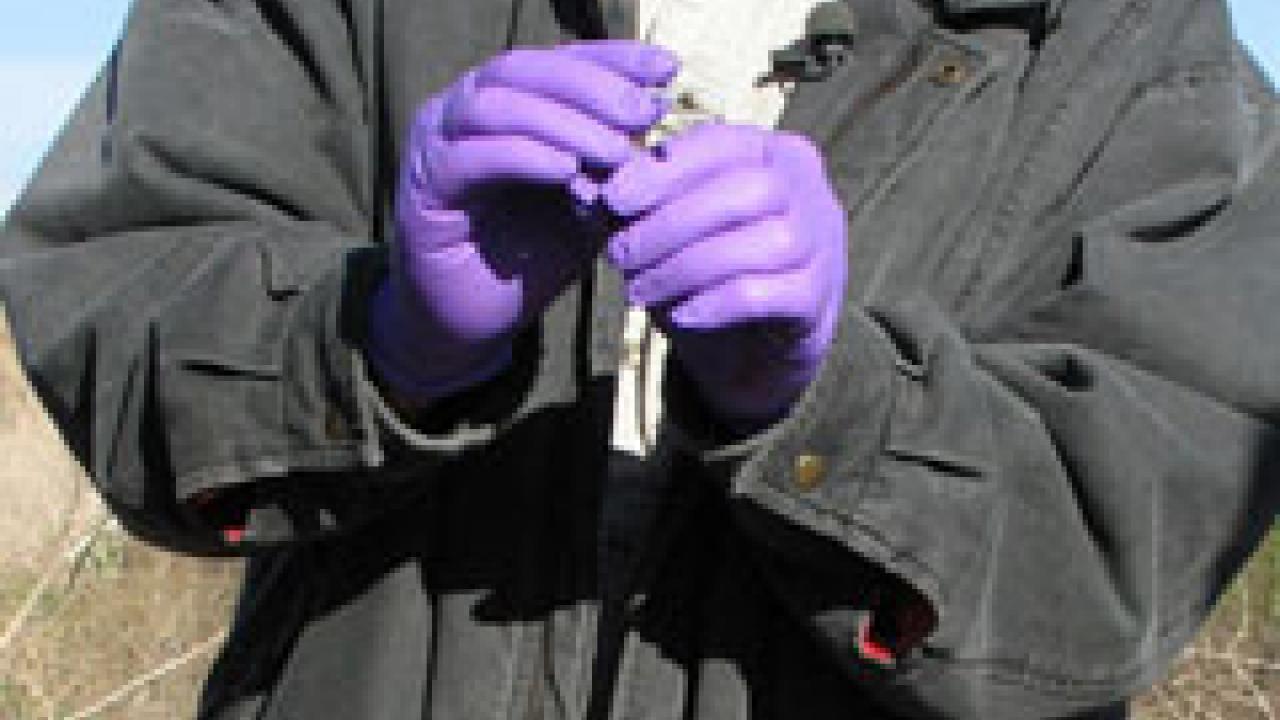The international science community is not doing enough to track the many avian influenza viruses that might cause the next pandemic, a UC Davis researcher says in today's issue of the journal Nature.
Global surveillance is critical for identifying and tracking potential pandemic viruses such as highly pathogenic H5N1. But the current surveillance strategy in wild birds is piecemeal and risks missing important virus sources or subtypes, Walter Boyce writes in a commentary.
Boyce, a UC Davis professor of veterinary medicine, is co-director of the $18.5 million Center for Rapid Influenza Surveillance and Research (CRISAR). The center, supported by the National Institutes of Health, is charged with tracking viruses in wild birds in the United States and Asia.
Addressing Nature's worldwide audience, Boyce says scientists must take several steps to catch avian influenza viruses before they catch us:
- Go where the H5N1 virus lives: Surveillance has focused too heavily on Europe and North America, where few wild birds are infected. To really understand the role of wild birds in spreading H5N1, more surveillance should be done in places where the virus is endemic, such as China, southeast Asia and Africa, Boyce says.
- Characterize all of the influenza viruses they collect: Currently, the narrow focus on H5N1 misses other viruses that also pose pandemic risks.
- Share samples and data more promptly: Whether caused by regulatory hurdles or researchers' concerns about intellectual property rights, a reluctance to share hampers health officials' ability to track and respond to potential pandemic viruses. Boyce recommends that the scientific community set a standard of releasing data no more than 45 days after it is generated.
The commentary ("Vigilance is not enough") is online at http://www.nature.com/nature/journal/v450/n7171/full/450791a.html.
For background on how UC Davis provided leadership and education during 2005 and 2006, go to our "Avian Influenza: News and Information" special report.
About the Wildlife Health Center
The Wildlife Health Center, a program of the UC Davis School of Veterinary Medicine, focuses on the health of wildlife, people and the ecosystems they share. More information: http://www.vetmed.ucdavis.edu/whc/.
About UC Davis
The University of California is one of the world's foremost research and teaching institutions, and UC Davis is the University of California's flagship campus for environmental studies. UC Davis is a global leader in solving problems related to air and water quality; water and land use; agricultural practices; endangered and invasive plants and animals; climate change; resource economics; information technology; and human society and culture. More information: http://www.ucdavis.edu.
Media Resources
Kat Kerlin, Research news (emphasis on environmental sciences), 530-750-9195, kekerlin@ucdavis.edu
Walter Boyce, Wildlife Health Center, (530) 752-1401, wmboyce@ucdavis.edu
